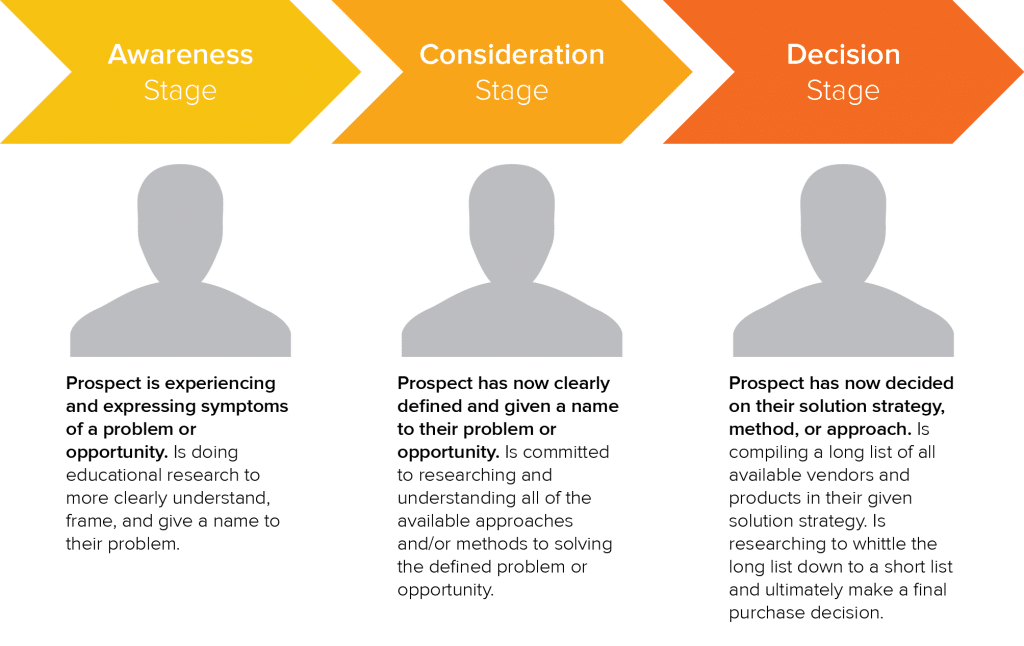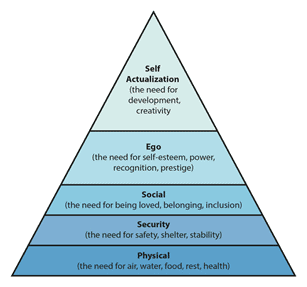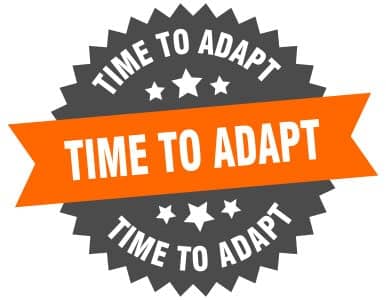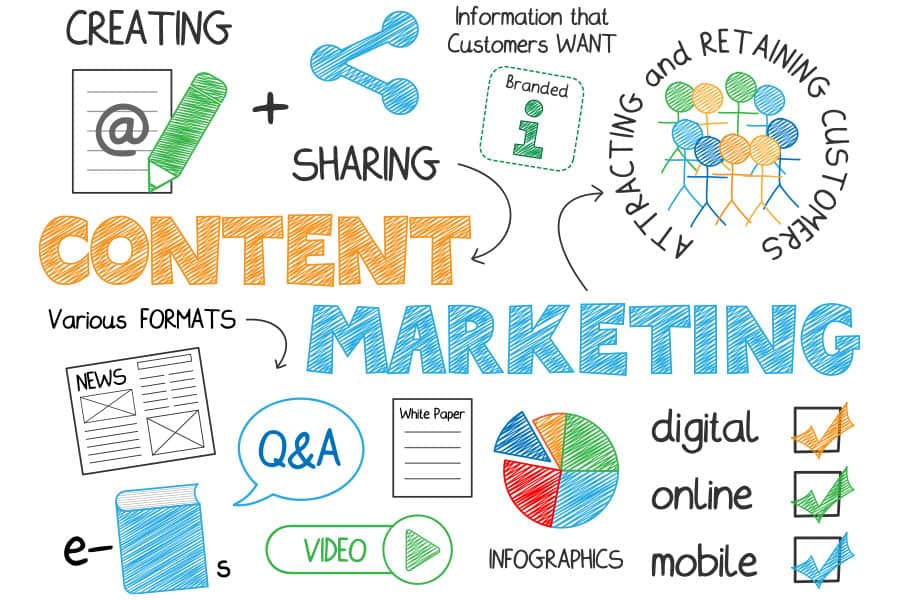If you’ve felt uprooted and overwhelmed in your business-to-business (B2B) content marketing efforts this year, you’re not alone. The COVID-19 pandemic has impacted every facet of everyday life, upending hospital systems, schools and businesses for months on ends. So, it’s no surprise if you feel a bit off your game, vacillating between reactive and proactive measures when marketing your business. The whole of 2020 seemed to throw one big monkey wrench after another in just about every company’s marketing plans.
Let’s be honest, how do you prepare for a global pandemic? The truth is that there is no instruction manual for marketing your business during a crisis like this. With no coronavirus playbook to guide us, we were forced to lace up our Chuck Taylors (just me?) and get to work with nothing but good old-fashioned experience and common sense to guide the way.
Industrial distributors were forced to adapt their plans to meet the changing needs of their customers and they did it the best way they knew how, through trusted relationships. But due to mass shutdowns, the only way they could nurture these relationships were over the phone or through emails. That just didn’t have the same impact of in-person meetings and handshakes.
With more people stuck at home, they’re spending more time online. Some companies realized the smart money was on creating digital content that could connect businesses to potential buyers, provide value and strengthen relationships. In addition to creating blog articles and email campaigns, many companies spent time restructuring their messaging and distributing those messages through various channels like social media and video platforms like YouTube.
Related: How to Create a Content Marketing Strategy for Success in the Industrial World
According to a survey performed by Content Marketing Institute, a whopping 94% of marketers changed their content marketing strategy in response to the COVID-19 pandemic and four out of five said the changes were effective in reaching buyers. According to McKinsey and Company, the majority of B2B companies have shifted their go-to market strategy from traditional to digital in the midst of the pandemic.
B2B Content Marketing Trends for 2021
While we hope to never utter the words ‘socially distanced’, ‘mandated face masks’ and ‘coronavirus’ ever again after this nightmare, many of the changes made in response to the pandemic appear to be here to stay. Here are some best practices that have never been more critical to your content’s performance.
Know customer journeys are not linear.
Think for a minute of all the ways your customers buy from you. For some purchases, they may strictly work with your sales team, placing regular orders in person or on the phone. Some may place an order online through a dedicated account. Some may be more infrequent buyers, purchasing seasonally or as needed.
For this reason, your goal should be to support them with helpful guidance no matter where they are on their buying journey. For instance, your website can house helpful product information and reviews, application-based articles or case studies to help your customer at any stage in their decision-making process. Just remember not all content leads to immediate transactions as more buyers are making careful and budget-driven decisions that lead to longer buying cycles.

Put people, not products first.
Think about the community your audience belongs to and what they care about. Then, create content that hits the mark. Rather than only creating whitepapers, blog articles or videos that focus solely on your brand or products, look at the world through your customer’s eyes. Think about the challenges they face and how you can help them thrive. Create content that solves those challenges and alleviates common pain points.
Go beyond the product and consider ways that your company can contribute to the strength and resiliency of their community. Most importantly, talk to them! Open lines of communication through live chats and social media. Not only will your customers feel that their feedback is appreciated, you will gain incredible insight on how you can deliver a better customer experience.

Understand the psychology of the buy.
We are in the midst of confusing and trying times and there’s no doubt the events of 2020 have had a significant impact on buying behaviors. While some are tightening their belts and limiting spend to essentials, other companies are increasing their discretionary spend in preparation of what’s ahead.
With so much uncertainty remaining on the horizon, remembering Maslow’s hierarchy of needs is more important than ever. Understanding your customers’ basic needs, desires, and reactions to events is a fundamental part of marketing, but far too often overlooked.

Right now, essential needs are taking the place of wants and desires. Reach your buyer by providing solutions that can meet those needs, eliminate inefficiencies in their operations and enable them to be more profitable.
Look at your current messaging. Does it need to be adjusted based on the state of the world? Does it provide helpful guidance and solutions? If your message is more sales focused than people focused, it’s time to head back to the drawing board.
Adapt and grow as you go.
Don’t be afraid to try new content marketing strategies and fail. Humans are creatures of habit and it’s natural to want to continue with the old way of doing things to avoid risk. But in today’s world, that can be the kiss of death for businesses afraid to go online.
It’s not just researching information and browsing products online that has become more prevalent with B2B buyers. According to an article from McKinsey and Company, digital is the wave of the future for B2B sales and report that 70-80% of B2B decision makers prefer the new digital self-serve reality. They aren’t making small ticket purchases online either. Some 70% of those surveyed said they would make purchases in excess of $50,000 online!

Content Marketing is Not Meant to Replace Traditional Marketing
Online content marketing is not meant to replace your traditional marketing methods like sales flyers or catalogs, it’s to enhance the customer experience with consistent and helpful information whenever and wherever they choose to interact with your brand.
Effective content marketing strategies should consider each channel your customer uses to connect with you, including in person and online. Create regular social posts that engage with your customers and followers. Post blog articles that answer common product or service questions. Send regular emails sharing details of promotions or new offerings. Continue to share printed collateral like sales sheets and leave behinds.
The quickest way to brainstorm new content is to speak with your customers and sales teams. Learn more about their struggles. Ask them what they like or don’t like about your services. Be direct and ask them how you can ensure their business for years to come.
Coronavirus has changed the world we live in and successful companies adapt. Be flexible, manage your expectations and plan for the long game.
Do you need to outsource your content marketing, but you’re not sure how to find the right partner? You’re not alone. Of B2B marketers polled, 69% said the biggest challenge they faced when outsourcing was finding partners with adequate topic expertise. Another 43% say they can’t find partners who can understand and empathize with their customers.
3 Aspens Media can help with extensive industry knowledge and experience. Reach out to us at info@3aspensmedia.com



